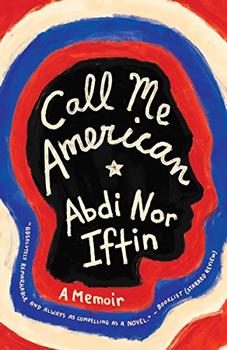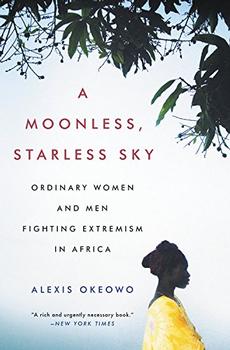Summary | Excerpt | Reviews | Beyond the book | Read-Alikes | Genres & Themes | Author Bio

From one of Granta's Best of Young British Novelists, a stunning novel illuminating Somalia's tragic civil war
It is 1987 and Hargeisa waits. Whispers of revolution travel on the dry winds, but still the dictatorship remains secure.
Soon, through the eyes of three women, we will see Somalia fall.
Nine-year-old Deqo has left the vast refugee camp where she was born, lured to the city by the promise of her first pair of shoes.
Kawsar, a solitary widow, is trapped in her little house with its garden clawed from the desert, confined to her bed after a savage beating in the local police station.
Filsan, a young female soldier, has moved from Mogadishu to suppress the rebellion growing in the north.
As the country is unraveled by a civil war that will shock the world, the fates of these three women are twisted irrevocably together.
Nadifa Mohamed was born in Hargeisa and was exiled before the outbreak of war. In The Orchard of Lost Souls, she returns to Hargeisa in her imagination. Intimate, frank, brimming with beauty and fierce love, this novel is an unforgettable account of ordinary lives lived in extraordinary times.
Nadifa Mohamed deftly interlinks the women's three narratives in a way that, if a little far-fetched, proves to be one that is immensely rewarding, heart-warming and thoroughly sagacious. Think war-torn Somalia will leave you feeling depressed and at odds with the world? Think again. This portrait, however fictional, is illuminating...continued
Full Review
 (644 words)
(644 words)
(Reviewed by Lucy Rock).
Nadifa Mohamed's latest novel is set at the birth of a new conflict for Somalia and runs right up to the present day. To understand the whys and wherefores of Somali lawlessness is to gain insight into one of the most treacherous parts of the world.
 In 1991, the country's socialist dictator Mohammed Siad Barre was overthrown, and an unremitting state of conflict and lawlessness followed for many years. Warlords and militant groups spent over two decades locked in a power struggle that has destroyed Somalia's population and laid waste to the country's towns and cities. Conditions were often so bad that the country was abandoned even by U.N. peacekeepers. After a series of peackeeping initiatives, the current government led by ...
In 1991, the country's socialist dictator Mohammed Siad Barre was overthrown, and an unremitting state of conflict and lawlessness followed for many years. Warlords and militant groups spent over two decades locked in a power struggle that has destroyed Somalia's population and laid waste to the country's towns and cities. Conditions were often so bad that the country was abandoned even by U.N. peacekeepers. After a series of peackeeping initiatives, the current government led by ...

If you liked The Orchard of Lost Souls, try these:

by Abdi Nor Iftin
Published 2019
The incredible true story of a boy living in war-torn Somalia who escapes to America--first by way of the movies; years later, through a miraculous green card.

by Alexis Okeowo
Published 2018
In the tradition of Behind the Beautiful Forevers, this is a masterful, humane work of literary journalism by New Yorker staff writer Alexis Okeowo - a vivid narrative of Africans who are courageously resisting their continent's wave of fundamentalism.